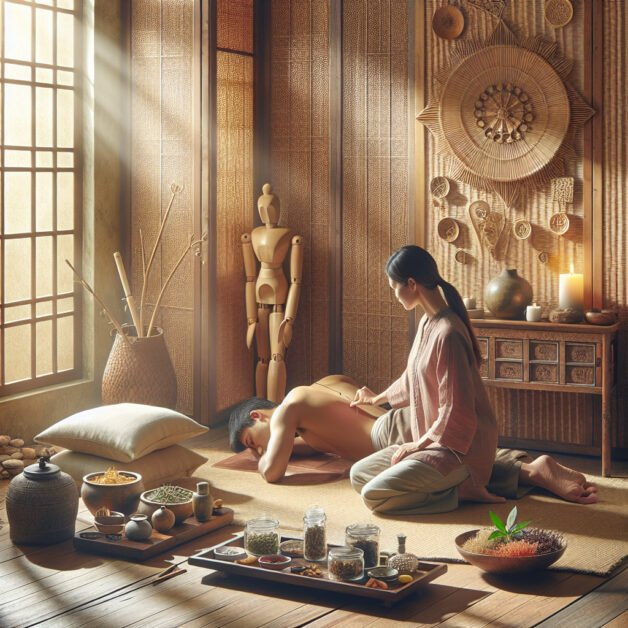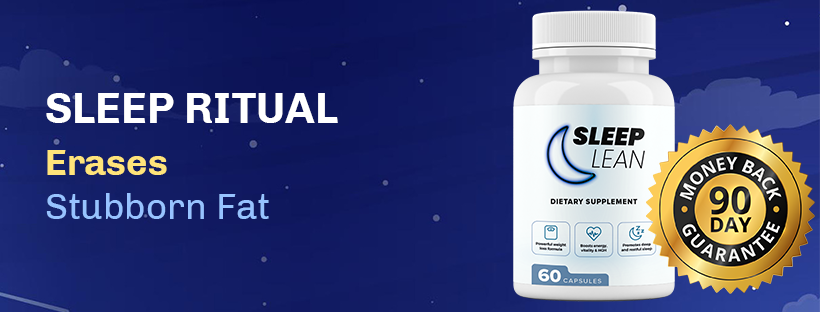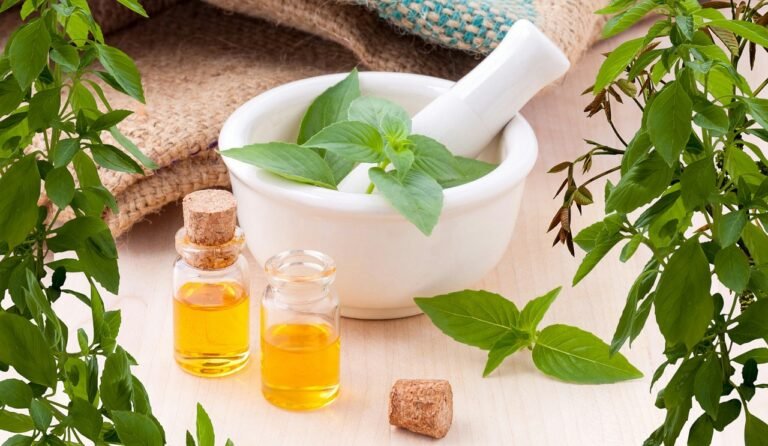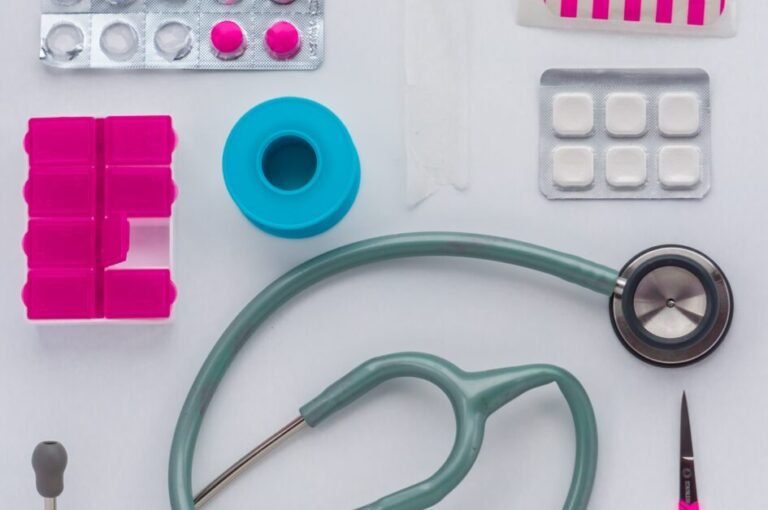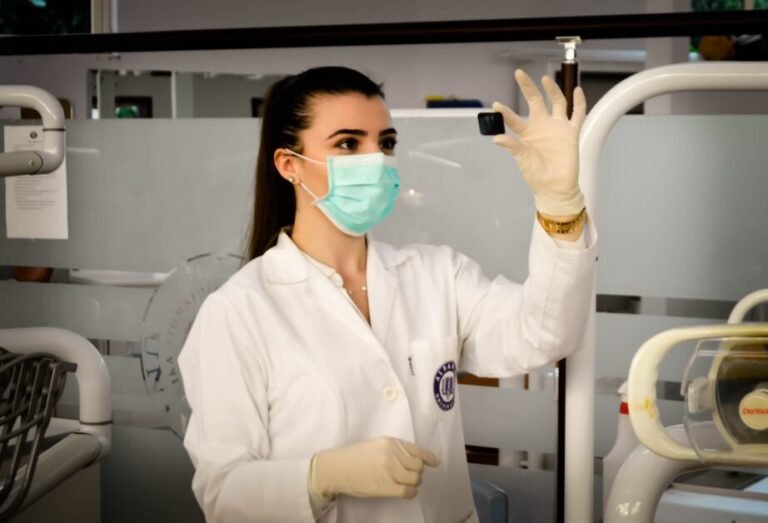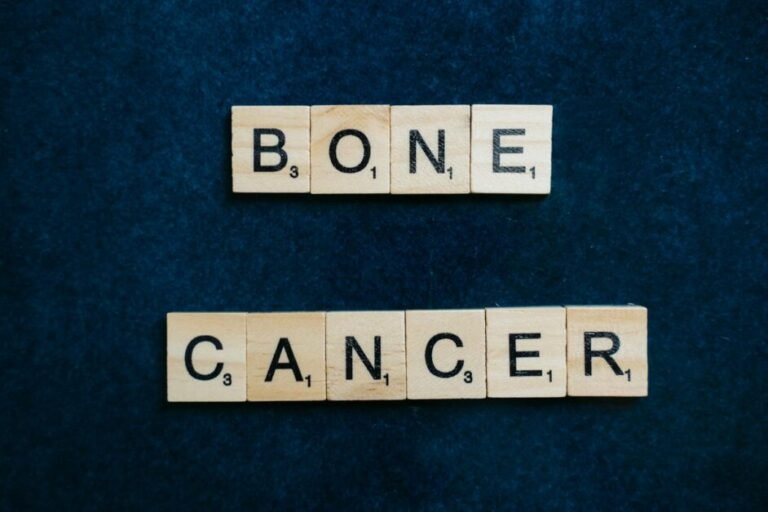Exploring the Benefits of Alternative Medicine for Anxiety
In “Exploring the Benefits of Alternative Medicine for Anxiety,” we uncover the potential advantages that alternative medicine can offer individuals struggling with anxiety. At Alternative Medicine Facts, our dedication to holistic healing and the exploration of alternative approaches to wellness has led us to delve into the world of alternative medicine for anxiety. By providing reliable, evidence-based information, our aim is to empower you to make informed decisions about your health and well-being. So, let’s explore the potential benefits of alternative medicine in managing anxiety and discover how it could potentially improve your overall well-being.

Overview of Anxiety
Anxiety is a common and often debilitating mental health condition that affects millions of individuals worldwide. It is characterized by excessive worry, fear, and a sense of impending doom. While it is normal to experience occasional feelings of anxiety in response to stressful situations, individuals with anxiety disorders experience these symptoms to an excessive and distressing degree. Understanding anxiety disorders, their prevalence, and the symptoms associated with them is crucial in effectively managing and treating this condition.
Understanding anxiety disorders
Anxiety disorders encompass a range of conditions, including generalized anxiety disorder (GAD), panic disorder, social anxiety disorder, and specific phobias. Each disorder has its unique characteristics, but they all share a common thread of excessive and persistent anxiety.
GAD is characterized by chronic, excessive worry about various aspects of life, such as work, relationships, finances, and health. Panic disorder involves recurrent panic attacks, which are sudden and intense episodes of fear accompanied by physical symptoms like rapid heartbeat, shortness of breath, and trembling.
Social anxiety disorder is characterized by an intense fear of social situations and a constant worry about being embarrassed or judged by others. Specific phobias refer to intense and irrational fears of specific objects or situations, such as heights, flying, spiders, or enclosed spaces.
Prevalence of anxiety disorders
Anxiety disorders are among the most common mental health conditions globally, affecting approximately 1 in 5 adults at some point in their lives. Women are twice as likely as men to experience anxiety disorders, and the condition often begins during adolescence or early adulthood.
The exact cause of anxiety disorders is not yet fully understood, but a combination of genetic, environmental, and neurological factors is believed to contribute to their development. Factors like family history of anxiety disorders, traumatic life events, chronic medical conditions, and substance abuse can increase the risk of developing an anxiety disorder.
Symptoms of anxiety disorders
Anxiety disorders manifest through a variety of physical, emotional, and cognitive symptoms. Physical symptoms may include increased heart rate, sweating, trembling, shortness of breath, dizziness, and gastrointestinal disturbances. Emotional symptoms may include feelings of restlessness, irritability, and a constant sense of dread. Cognitive symptoms often involve excessive worry, difficulty concentrating, and racing thoughts.
These symptoms can significantly impact an individual’s daily life, relationships, work, and overall well-being. Recognizing these symptoms is essential for early intervention and effective treatment.
Traditional Approaches to Treating Anxiety
Traditional approaches to treating anxiety typically involve a combination of medication and psychotherapy. These methods have been widely used and have demonstrated efficacy in managing anxiety disorders.
Medications
Medications commonly prescribed for anxiety disorders include selective serotonin reuptake inhibitors (SSRIs), serotonin-norepinephrine reuptake inhibitors (SNRIs), benzodiazepines, and buspirone. These medications work by targeting neurotransmitters in the brain to reduce excessive anxiety symptoms.
It is important to consult with a healthcare professional to determine the appropriate medication and dosage, as each individual’s needs may vary. Side effects and potential interactions with other medications should also be discussed to ensure the safest and most effective treatment plan.
Psychotherapy
Psychotherapy, also known as talk therapy, is another traditional approach to treating anxiety disorders. Therapists utilize various techniques and approaches to help individuals gain insight into their thoughts, emotions, and behaviors, and develop coping strategies to manage anxiety.
Cognitive-behavioral therapy (CBT) is a widely used and evidence-based form of psychotherapy for anxiety disorders. It focuses on identifying and challenging negative thought patterns and behaviors that contribute to anxiety, and replacing them with more positive and adaptive ones.
Exploring the Effectiveness of Alternative Medicine for Anxiety
In recent years, there has been growing interest in alternative medicine approaches for managing anxiety. Alternative medicine, also known as complementary or integrative medicine, encompasses a wide range of practices and treatments that are used alongside or instead of traditional approaches.
Mind-body Medicine
Mind-body medicine approaches aim to promote the connection between the mind and body, recognizing their interdependence in overall well-being. Practices like deep breathing exercises, progressive muscle relaxation, guided imagery, and biofeedback are often utilized to reduce stress and anxiety levels.
These techniques help individuals become more aware of their bodily sensations and mental states, promoting relaxation and mindfulness. Mind-body medicine can be effective in reducing anxiety symptoms and enhancing overall emotional well-being.
Herbal Remedies
Herbal remedies have been used for centuries in different cultures as a natural approach to managing anxiety. Some commonly used herbs include kava, passionflower, and valerian root.
Kava, native to the South Pacific, has been shown to have anxiolytic properties and can help reduce anxiety symptoms. Passionflower has calming effects and may help with sleep disturbances often associated with anxiety. Valerian root is known for its sedative properties and can be used to alleviate anxiety and promote relaxation.
Before using herbal remedies, it is essential to consult with a healthcare professional, as some herbs can interact with medications or have potential side effects.
Acupuncture
Acupuncture is a traditional Chinese medicine practice that involves the insertion of thin needles into specific points on the body to restore balance and promote healing. It is believed to stimulate the flow of energy, or Qi, through pathways called meridians.
Research suggests that acupuncture may have a positive impact on anxiety by reducing stress hormones, regulating neurotransmitters, and promoting relaxation. However, more studies are needed to fully understand its effectiveness and mechanisms of action.
Massage Therapy
Massage therapy, a hands-on manipulation of the body’s soft tissues, is another alternative approach that can potentially help reduce anxiety. Different techniques, such as Swedish massage, deep tissue massage, and aromatherapy massage, can be used to alleviate muscle tension, promote relaxation, and reduce stress.
Studies have shown that massage therapy can decrease levels of the stress hormone cortisol and increase the release of endorphins, the body’s natural pain and stress relievers. It may contribute to overall well-being and help manage anxiety symptoms.
Benefits of Mind-Body Medicine
Mind-body medicine encompasses a variety of relaxation techniques, meditation, and mindfulness practices that can provide significant benefits for individuals with anxiety.
Relaxation Techniques
Relaxation techniques, such as deep breathing exercises, progressive muscle relaxation, and guided imagery, can help calm the mind and reduce physical tension. By activating the body’s relaxation response, these techniques counteract the body’s stress response, promoting a sense of calmness and reducing anxiety symptoms.
Meditation and Mindfulness
Meditation involves focusing the mind on a specific object, thought, or activity to achieve mental clarity and create a state of deep relaxation. Mindfulness, on the other hand, involves paying attention to the present moment without judgment.
Both meditation and mindfulness have been shown to reduce anxiety and improve overall well-being. They promote self-awareness, increase resilience, and help individuals develop healthier coping mechanisms for managing daily stressors.
Yoga
Yoga combines physical postures, breathing exercises, and meditation to promote physical and mental well-being. Regular yoga practice has been found to reduce anxiety symptoms, enhance relaxation, and improve emotional balance.
The physical movements, breathing techniques, and focus on mindfulness during yoga help individuals connect their mind, body, and breath, fostering a sense of harmony and peace. Yoga can be an effective complement to traditional treatment approaches for anxiety disorders.
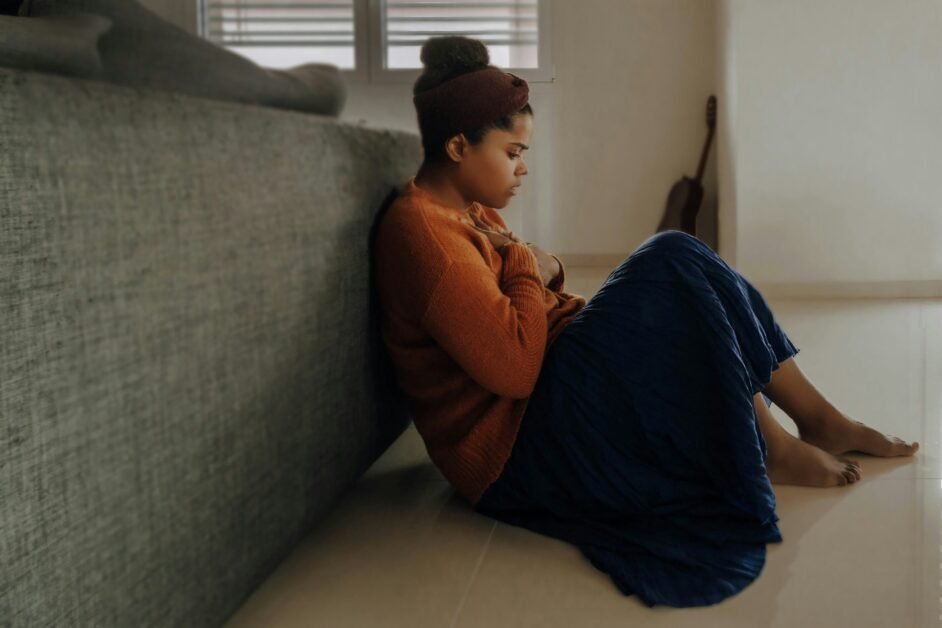
Effectiveness of Herbal Remedies for Anxiety
Herbal remedies have been used for centuries to alleviate anxiety symptoms, and several herbs have shown potential benefits in managing anxiety.
Kava
Kava, also known as kava kava, is a plant native to the South Pacific islands. It has been traditionally used as a ceremonial drink and is believed to have calming and relaxing effects. Research suggests that kava can reduce anxiety symptoms without causing significant sedation or impairment.
However, it is important to note that prolonged or excessive use of kava may have adverse effects on the liver. Consultation with a healthcare professional is crucial before considering kava as an alternative approach for anxiety management.
Passionflower
Passionflower is a plant with calming properties that has been used for centuries to promote relaxation and improve sleep. Research has shown that passionflower may help alleviate symptoms of anxiety and improve overall well-being.
It is generally considered safe when used as directed, but potential interactions with certain medications should be considered. Consultation with a healthcare professional is advised before incorporating passionflower into a treatment plan.
Valerian Root
Valerian root is a herb that has been used as a natural remedy for anxiety and insomnia. It is believed to enhance the production of gamma-aminobutyric acid (GABA), a neurotransmitter that helps regulate anxiety and promotes relaxation.
While valerian root is generally safe for short-term use, long-term use or high doses may cause side effects such as headaches, dizziness, and gastrointestinal disturbances. As with any herbal remedy, it is important to consult with a healthcare professional before considering valerian root for anxiety management.
Understanding the Role of Acupuncture in Anxiety Treatment
Acupuncture is an ancient Chinese medicine practice that involves the insertion of thin needles into specific points on the body. It is based on the concept of energy flow or Qi through meridians, with the goal of restoring balance and promoting health.
Acupuncture principles for anxiety
According to traditional Chinese medicine principles, anxiety is believed to result from an imbalance or blockage of Qi in specific meridians. Acupuncture aims to restore the flow of Qi and rebalance the body’s energy.
By targeting specific acupuncture points related to anxiety, acupuncturists stimulate the body’s natural healing response and promote relaxation. Each treatment is tailored to the individual’s specific symptoms and patterns of disharmony.
Scientific evidence supporting acupuncture
While the mechanisms of acupuncture are still being studied, there is growing scientific evidence to support its effectiveness in reducing anxiety symptoms.
Research suggests that acupuncture may help regulate the release of neurotransmitters, such as serotonin and dopamine, which play a role in mood regulation. It may also reduce the levels of stress hormones, such as cortisol, and promote overall relaxation.
Benefits of acupuncture for anxiety
Acupuncture can provide several benefits for individuals with anxiety. Besides promoting relaxation and reducing anxiety symptoms, it can also help improve sleep quality, enhance overall well-being, and reduce the side effects associated with medications.
Acupuncture is generally considered safe when performed by a trained and licensed acupuncturist. However, it is important to consult with a healthcare professional to ensure that acupuncture is appropriate for individual circumstances and to discuss any potential risks or interactions with other treatments.
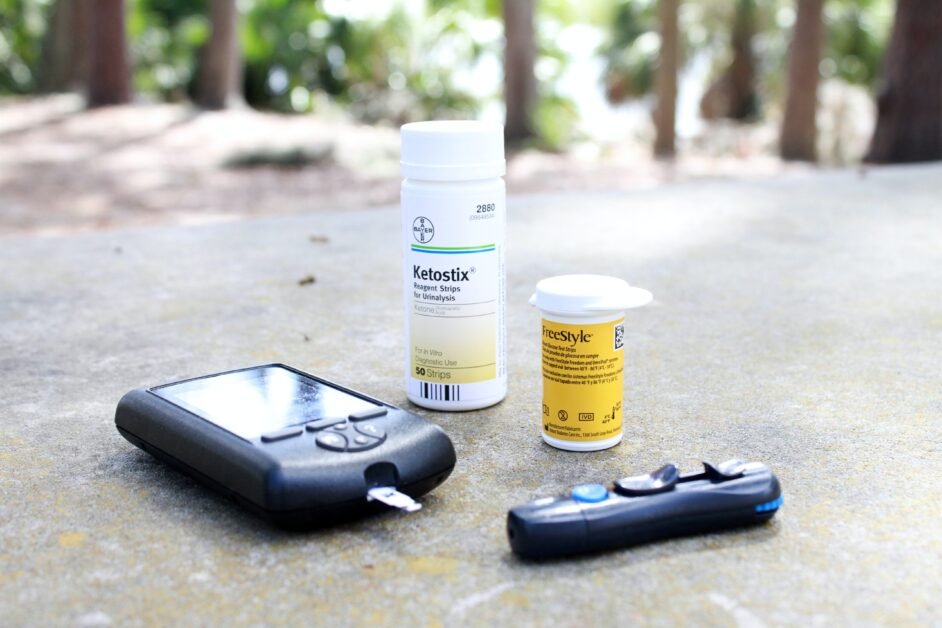
Exploring the Therapeutic Effects of Massage Therapy on Anxiety
Massage therapy involves the manipulation of the body’s soft tissues, including muscles, tendons, and ligaments, using manual techniques. It can be a soothing and effective approach to reducing anxiety symptoms and promoting relaxation.
Types of massage therapy for anxiety
Various types of massage therapy can be used to address anxiety symptoms and promote relaxation. Swedish massage, the most common type, involves long, flowing strokes and gentle kneading to relieve muscle tension and induce a state of relaxation.
Deep tissue massage focuses on deeper layers of muscle tissue to alleviate chronic tension and discomfort. Aromatherapy massage incorporates the use of essential oils, such as lavender or chamomile, to further enhance relaxation and reduce anxiety.
Mechanisms of action
Massage therapy has several physiological effects that can help reduce anxiety symptoms. It promotes the release of endorphins, the body’s natural pain and stress relievers, which induce feelings of relaxation and well-being.
Massage also increases the production of oxytocin, a hormone associated with bonding and social connection. This can help counteract feelings of isolation and enhance emotional well-being.
Additionally, massage therapy helps decrease the levels of stress hormones, such as cortisol, in the body. By reducing muscle tension and improving blood circulation, it contributes to overall physical and mental relaxation.
Research studies on massage therapy for anxiety
Numerous studies have explored the therapeutic effects of massage therapy on anxiety. Research has shown that massage therapy can significantly reduce anxiety symptoms and improve sleep quality in individuals with generalized anxiety disorder, panic disorder, and social anxiety disorder.
Massage therapy has also been found to alleviate symptoms of anxiety in other populations, such as cancer patients and individuals undergoing surgical procedures. However, further research is needed to fully understand the long-term effects and mechanisms of action of massage therapy on anxiety.
Combining Traditional and Alternative Approaches for Anxiety
Integrative medicine, also known as complementary or holistic medicine, involves the combination of traditional approaches and alternative practices to provide a comprehensive and personalized treatment plan for anxiety.
Integrative medicine for anxiety
Integrative medicine recognizes that each individual is unique and may benefit from a multidimensional approach that considers not only the physical symptoms but also the mental, emotional, and spiritual aspects of health.
By combining traditional treatments like medication and psychotherapy with alternative practices such as mind-body medicine, herbal remedies, acupuncture, and massage therapy, individuals have the opportunity to explore a range of options and find a treatment plan that works best for them.
Collaboration between healthcare providers
Effective integration of traditional and alternative approaches requires collaboration between healthcare providers. Open communication and mutual respect between physicians, therapists, and alternative medicine practitioners are essential to ensure a comprehensive and coordinated approach to anxiety treatment.
By working together, healthcare providers can share knowledge, expertise, and research findings, leading to more effective and evidence-based treatments.
Personalized treatment plans
A personalized approach to anxiety treatment is key in integrative medicine. Healthcare providers take into account the individual’s unique symptoms, preferences, and goals when creating a treatment plan.
Tailoring the treatment plan to the individual’s needs allows for the most effective combination of therapies, whether that involves medication, psychotherapy, mind-body techniques, herbal remedies, acupuncture, or massage therapy. This holistic approach focuses on empowering individuals to actively participate in their own healing process and achieve optimal well-being.
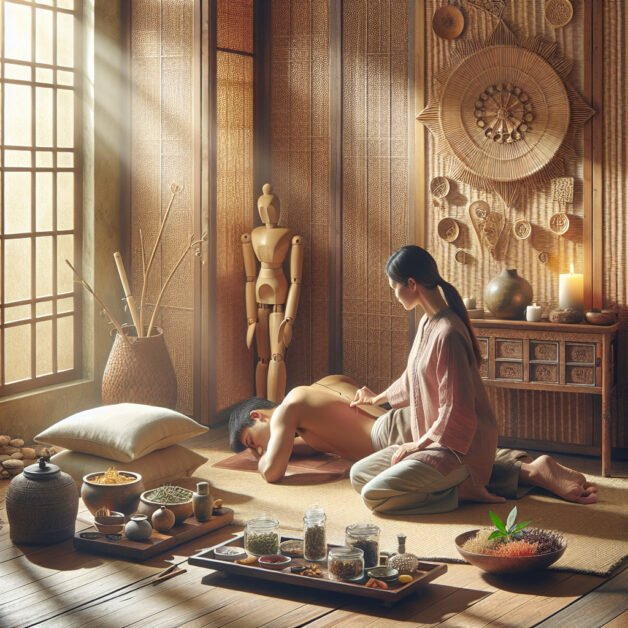
Considerations and Potential Risks
When exploring alternative medicine approaches for anxiety, it is important to consider certain factors and potential risks.
Consulting with healthcare professionals
Before incorporating any alternative medicine practices or remedies into an anxiety treatment plan, it is crucial to consult with a healthcare professional. They can provide guidance and evaluate the appropriateness of these approaches based on an individual’s specific circumstances.
Healthcare professionals can help assess potential risks, interactions with medications, and any contraindications. They can also provide guidance on finding reputable practitioners and sources of information.
Possible side effects
Just like traditional treatments, alternative medicine practices can have potential side effects. It is essential to be aware of the possible risks and monitor for any adverse reactions.
For example, herbal remedies can interact with medications or cause allergic reactions. Acupuncture can result in minor bruising, soreness, or infection if not performed properly. Massage therapy may not be suitable for individuals with certain medical conditions, such as deep vein thrombosis.
Understanding and discussing potential side effects with a healthcare professional helps ensure that alternative medicine approaches are used safely and effectively.
Interactions with medications
Some alternative medicine practices, particularly herbal remedies, can interact with medications commonly prescribed for anxiety. These interactions can affect the effectiveness of medications or potentially cause adverse effects.
It is crucial to inform healthcare providers about any alternative medicine practices or remedies being used, as well as all medications currently being taken. This allows for a comprehensive evaluation of potential interactions and adjustments to the treatment plan as necessary.
Conclusion
Managing anxiety requires a multifaceted and individualized approach that takes into account a person’s unique needs and preferences. Traditional approaches like medication and psychotherapy have proven efficacy in treating anxiety disorders, but alternative medicine practices can also play a valuable role.
Alternative medicine approaches, including mind-body medicine, herbal remedies, acupuncture, and massage therapy, offer additional tools for managing anxiety symptoms and improving overall well-being. They can complement traditional treatments, promoting relaxation, emotional balance, and a sense of empowerment.
By considering both traditional and alternative approaches and collaborating with healthcare providers, individuals can make informed decisions about their anxiety treatment. It is essential to prioritize open communication, consult with professionals, and be aware of potential risks to ensure safe and effective integration of alternative medicine into anxiety management.
As research continues to explore the benefits and mechanisms of these alternative approaches, individuals can further explore the possibilities of personalized and holistic care for anxiety. By empowering patients with knowledge and fostering collaboration between healthcare providers, the future of anxiety treatment holds great promise.

